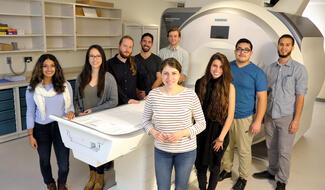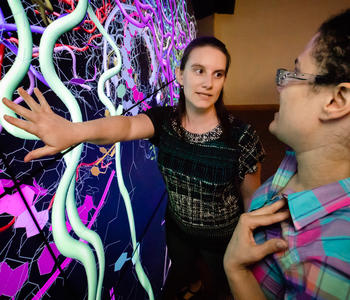PSYC 290 Research Experience
PSYC 290 Research Experience is for the Casual Researcher who just needs some elective hours, or for the Exploring/Determined Researcher wanting to explore pursuing a research career, including applying to grad school, PSYC 290 is the starting point. More information about PSYC 290.
PSYC 494 Advanced Research
PSYC 494 is the next step after PSYC 290 for undergraduates who want more research experience. In PSYC 494 Advanced Research, students take on more responsibility in the lab, and it requires submitting a paper at the end of the semester. More information about PSYC 494.
Honors Program
The Honors Program is a three-semester sequence of courses, taken along with PSYC 494, offers undergraduates an opportunity to create scholarly work on a specific research project, culminating in a bachelor's thesis. More information about the Honors Program.
Capstone Program
The Capstone Program two-semester sequence of courses, taken along with PSYC 494, offers undergraduates an opportunity to write a bachelor's thesis with the support of faculty mentors. More information about the Capstone Program.
Apply for an Undergraduate Research Scholarship in Psychological Science
The goal of this program is to enable research opportunities for students who face financial and time constraints that otherwise prevent them from participating in research. More information about the application process


